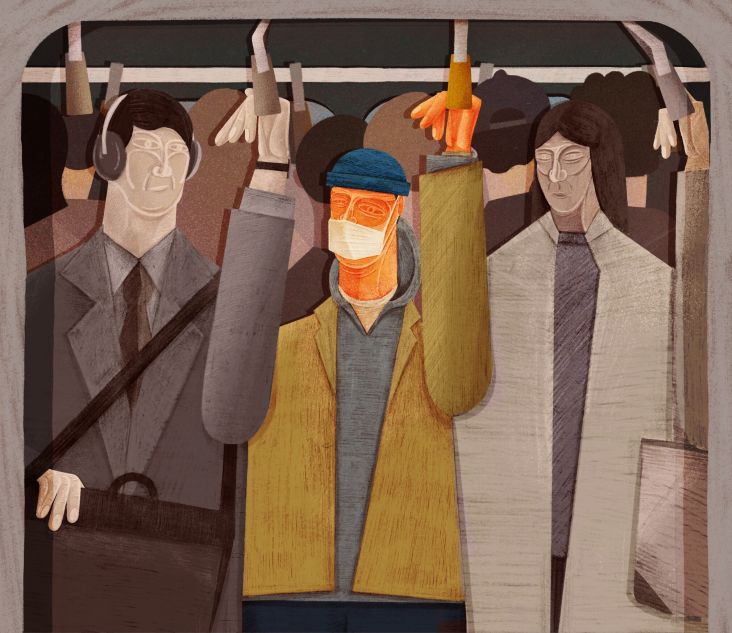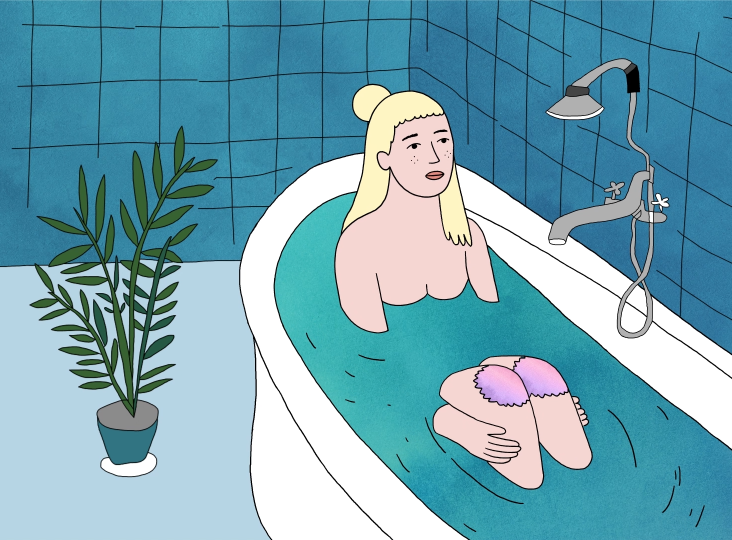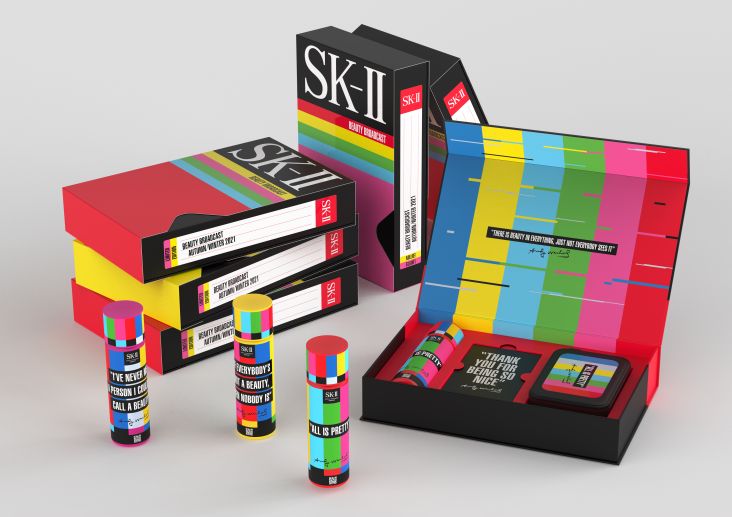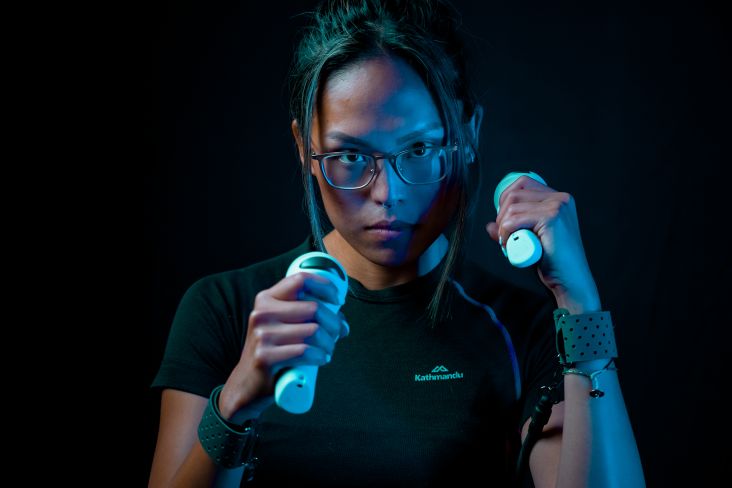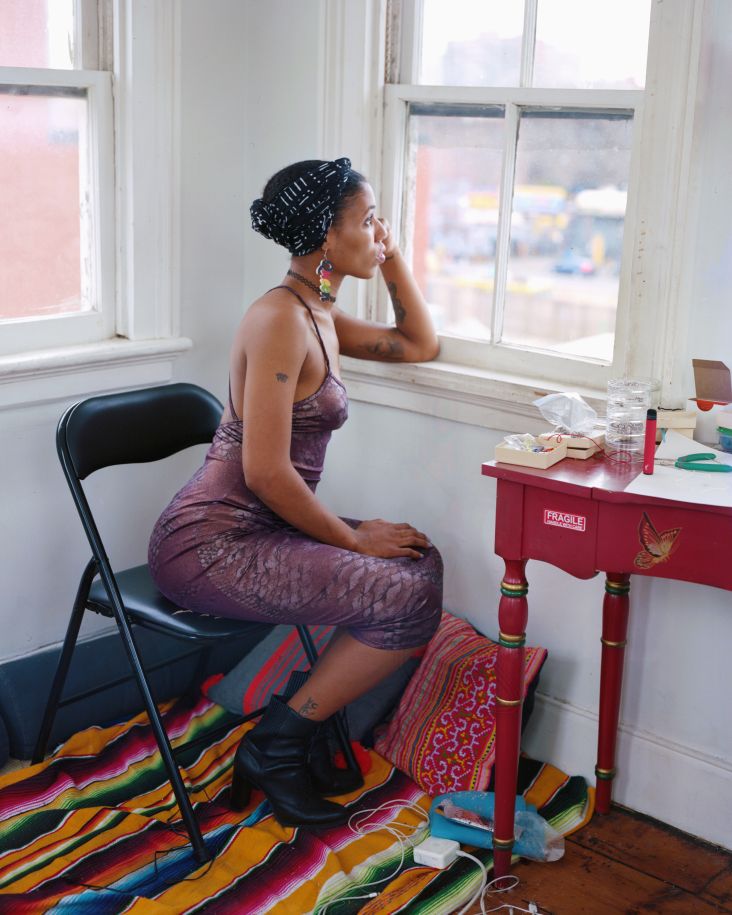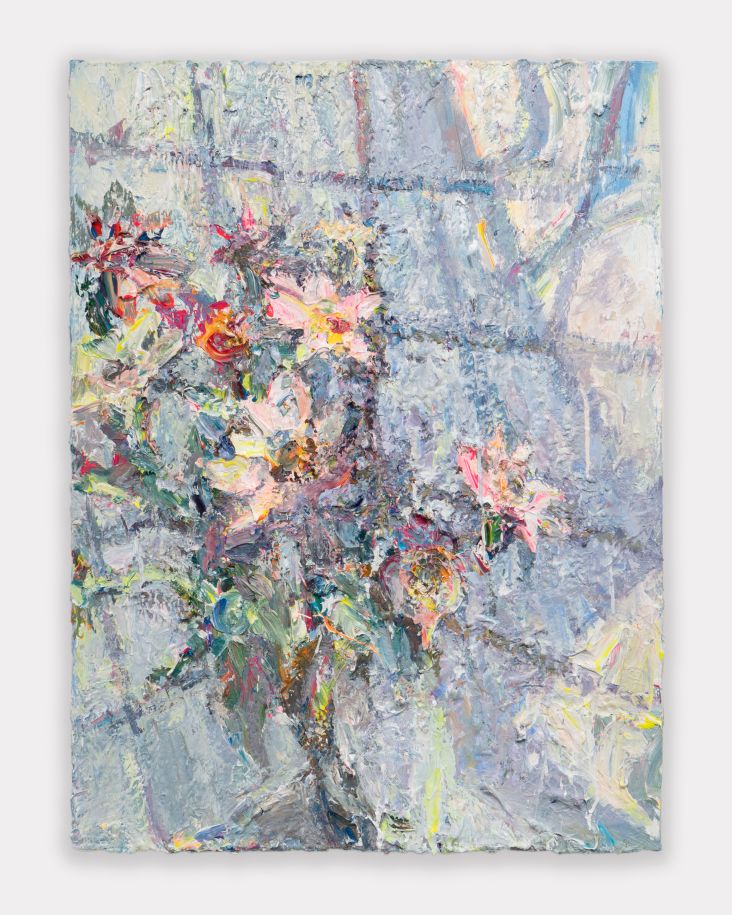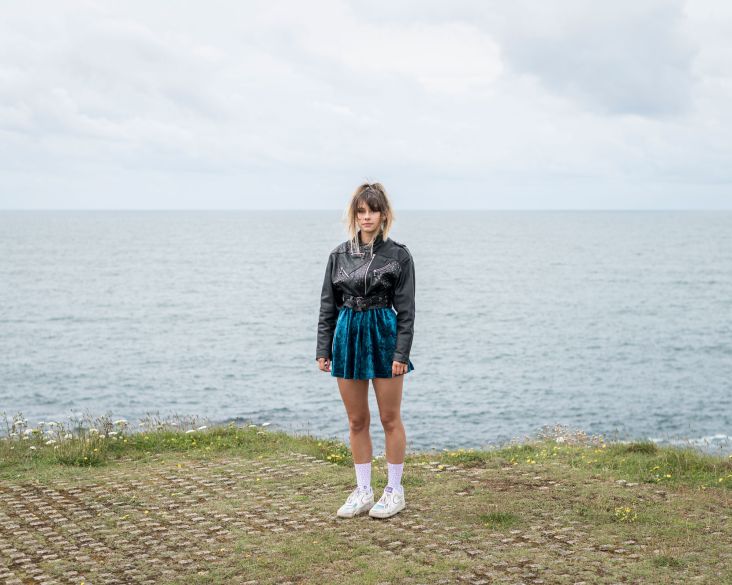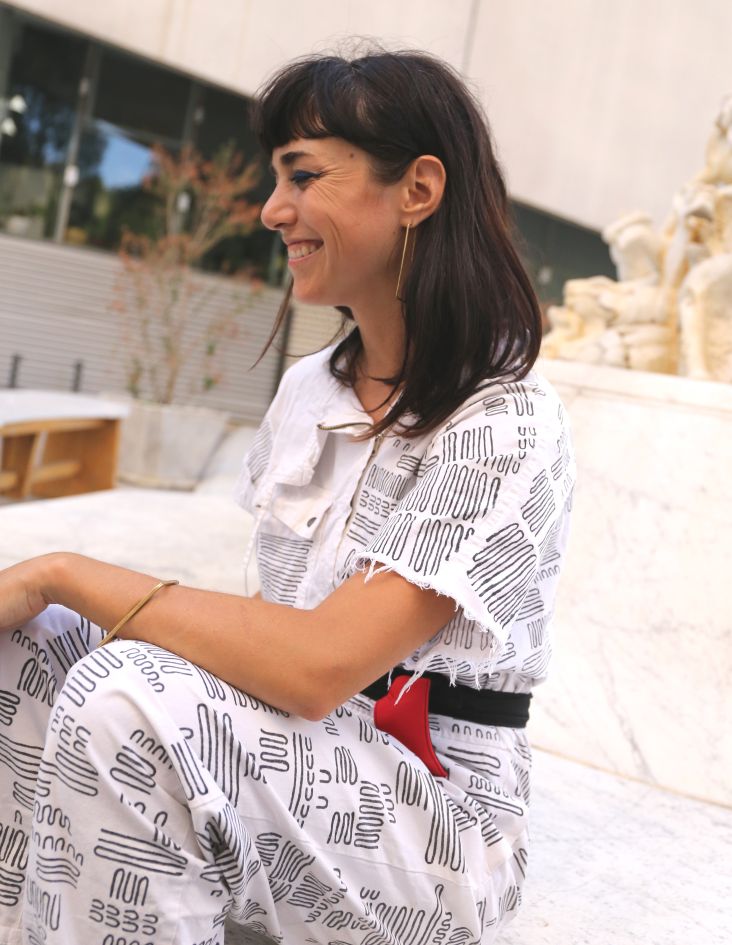Paintings by Toy Machine founder Ed Templeton that take a cynical view of modern American suburbia
In an upcoming exhibition of new paintings, drawings, and photographs, Californian artist Ed Templeton gives us a revealing insight into life in Orange County as politics and culture wars continue to divide hearts and minds. Through his works, we see brutal scrutiny of what it means to be human as well as feel isolated in American suburbia today.
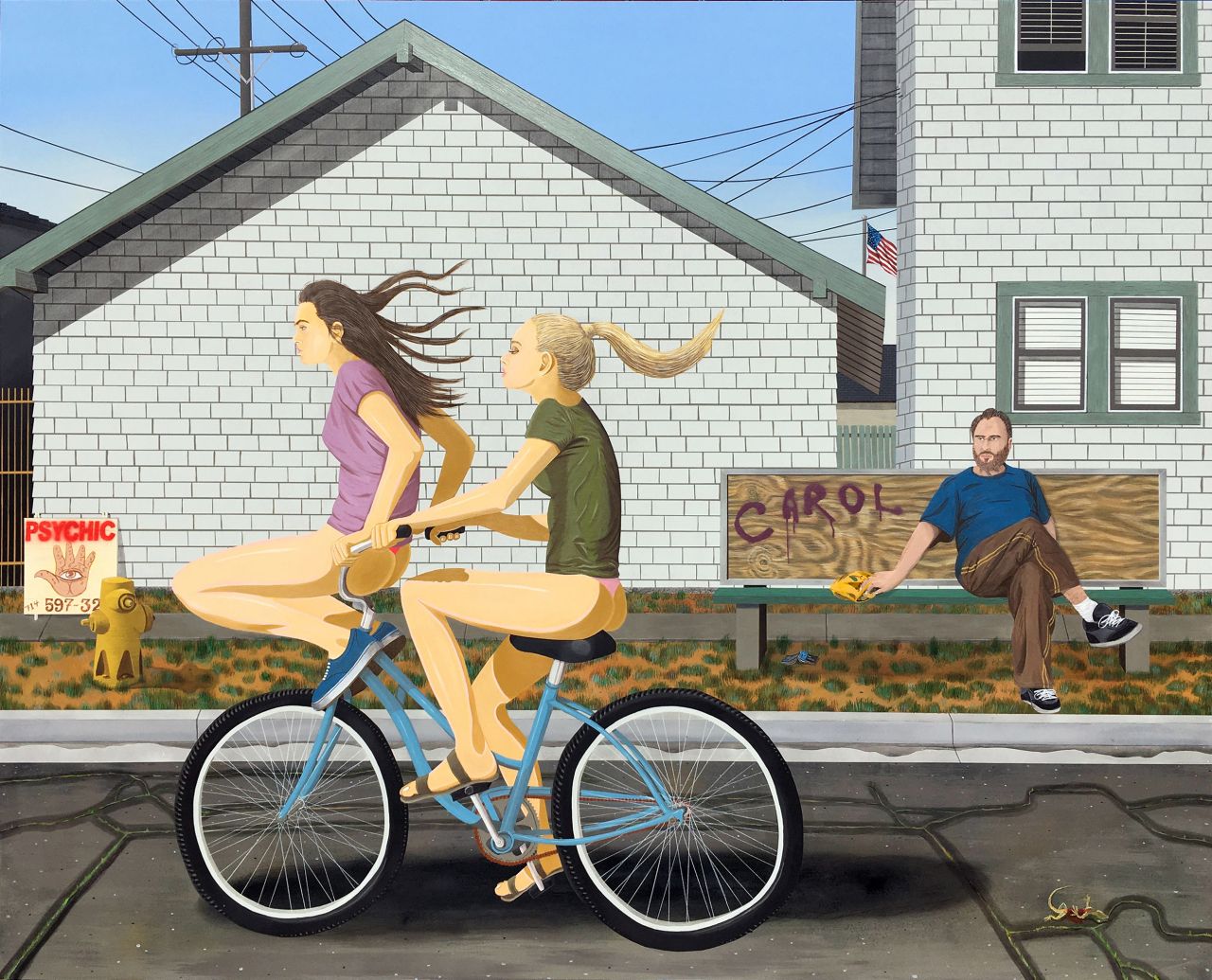
The Spring Cycle © Ed Templeton, Courtesy of Roberts Projects, LA, California
The theme of Templeton's latest series follows a similar pattern to earlier paintings and images where he gazes cynically on the "provincial customs and rituals" of his surroundings in Orange County, a place he describes as the "ever-polarising political milieu". The often unsettling and suggestive works are, at first glance, idyllic.
On closer inspection, we spot details such as discarded religious pamphlets or signs, highlighting how belief systems, however absurd, seem to permeate our lives. There are no boundaries between what is public and private. His subjects have no clear purpose, nor are relationships obviously at play. The disdain for suburban life and its downsides is something Templeton paints so glaringly that it almost smacks you in the face.
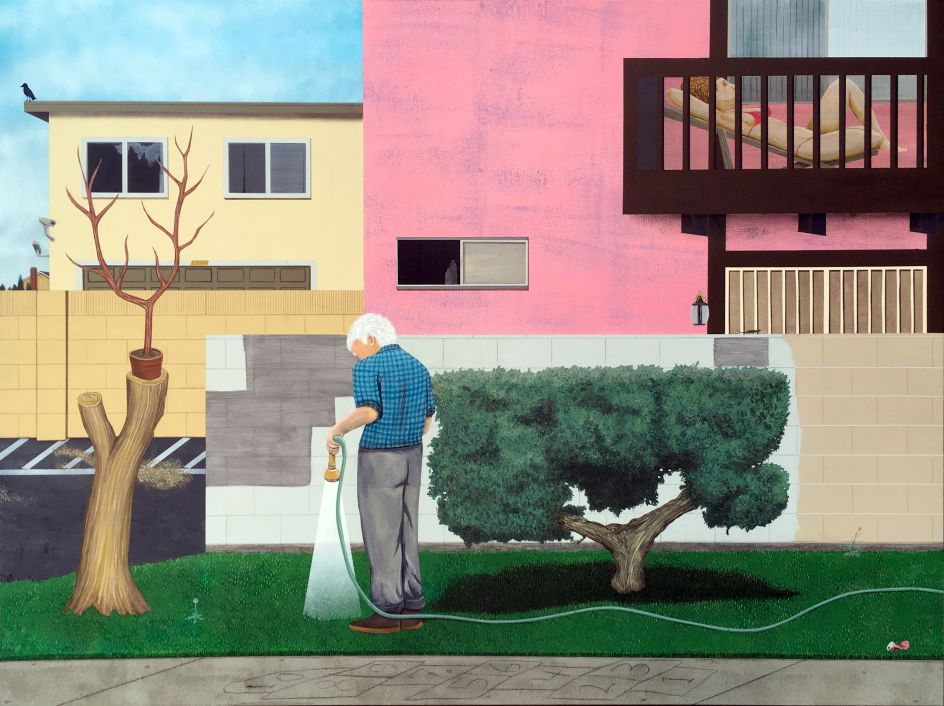
© Ed Templeton, Courtesy of Roberts Projects, LA, California
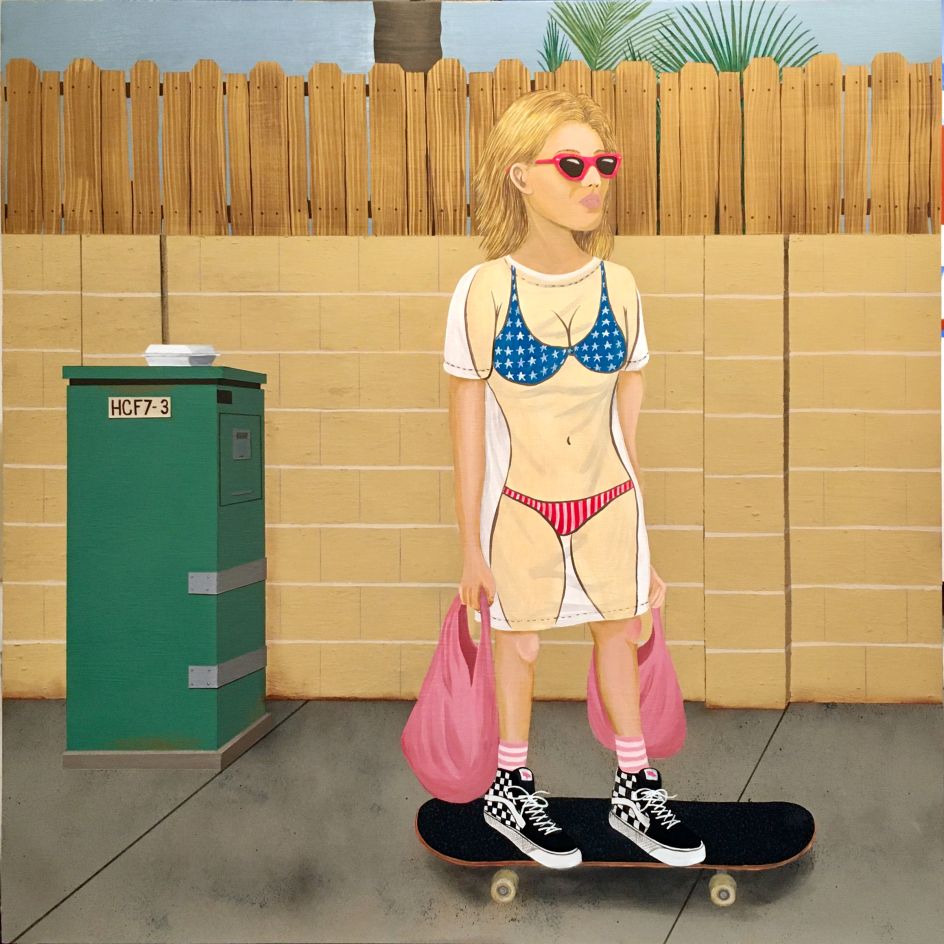
Skating to the Beach © Ed Templeton, Courtesy of Roberts Projects, LA, California
In his depicted world, young adults, and teens struggle to adapt to the banality of their parents' structured, homogenous world. It's something that resonates with his own childhood: "I found punk music and skateboarding which altered my worldview and disappointed my grandfather," says Templeton.
"I then married a mixed-race woman, whose father was from Mexico. I was eager to escape this provincial region, but through twists of fate ended up staying here and planting roots among the endless blocks of tract housing." It's only the changing seasons, spring being a highlight, that brings Templeton that cycle of change he always sought, providing a welcome escape from the banality of life.
On the style of his large-scale artworks, we see linear compositions that epitomise the West Coast's perfectly planned concrete landscapes, whilst his smaller paintings offer a more intimate quality. There is certainly some realism in this series, something that has defined his practice thus far. But these new works lack fantastical elements and instead introduce deep-set shadows, marking a departure from his normally hyper-saturated colour palette. The realistic, straightforward suburban scenes are not unlike, in both sensibility and style: the mundane photographs of Ed Ruscha's book Twentysix Gasoline Stations (1963) spring to mind.
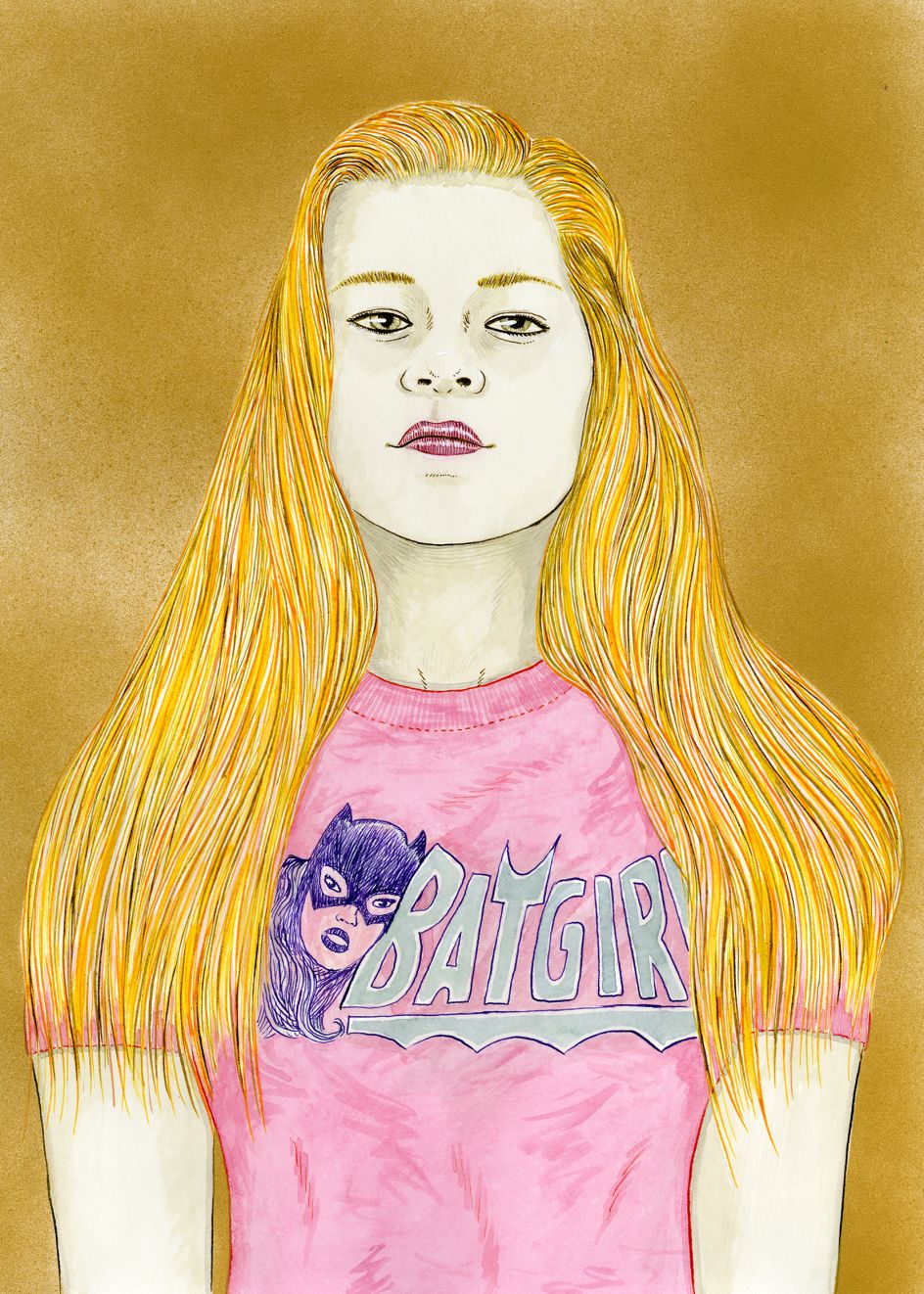
Kayla Little © Ed Templeton, Courtesy of Roberts Projects, LA, California
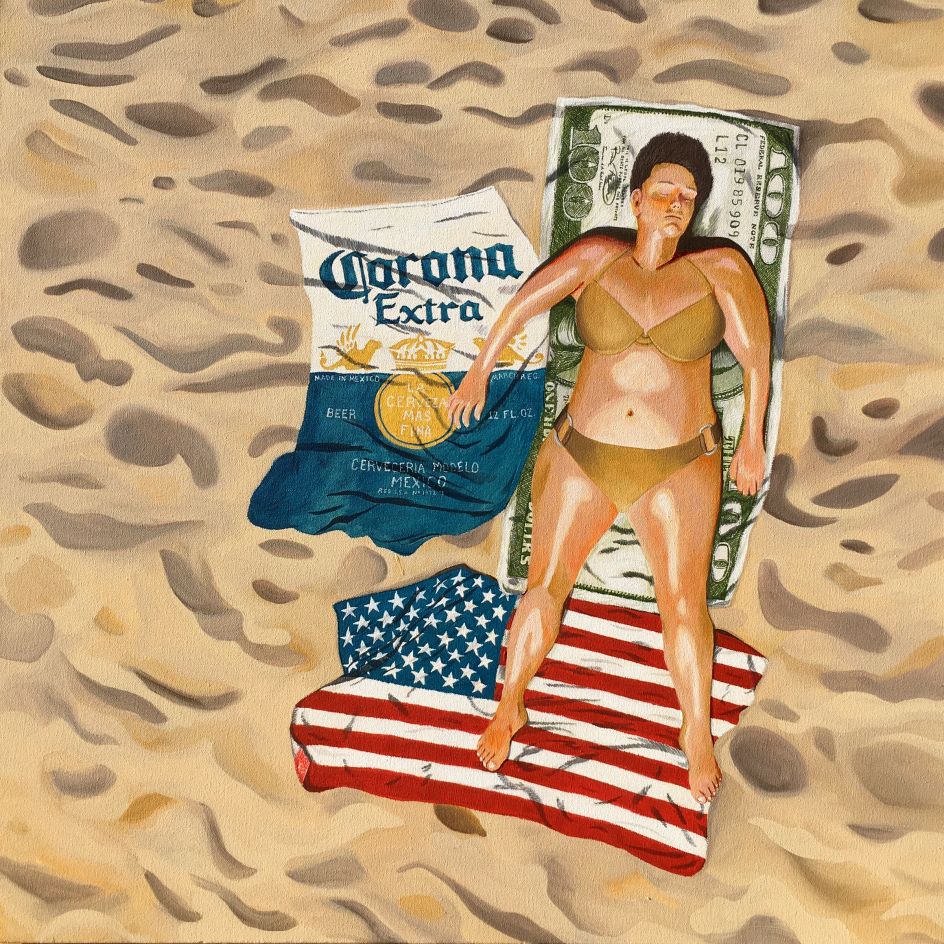
Sunbather © Ed Templeton, Courtesy of Roberts Projects, LA, California
Known most notably for his photography, documenting people and street life locally and globally, intimate portraits of his wife, and paintings that depict the "psychological complexity of American suburbia", Ed Templeton first gained recognition as a teenage skateboard prodigy in the late 1980s, becoming a professional skateboarder and beginning to paint in 1990. While touring the world for competitions in 1994, he picked up photography to document the incredible skate-culture he was taking part in. That same year he founded a skateboard company, Toy Machine, where he incorporated his artwork and graphics onto skateboard decks and advertisements.
Templeton uses photography, archival materials, painting, and drawing to explore the ugliness, banality, and beauty of the familiar everyday world, often attaching a deep, subjective emotional expression to his portraits. As the artist explains, all of his subjects come from his own life: "Everything I’ve ever shot has just been on the path that I’ve been on, be it skating or travel or street photography."
The Spring Cycle by Ed Templeton will run from 22 January until 5 March 2022 at Roberts Projects gallery in Los Angeles. For more info on the artist, visit ed-templeton.com.
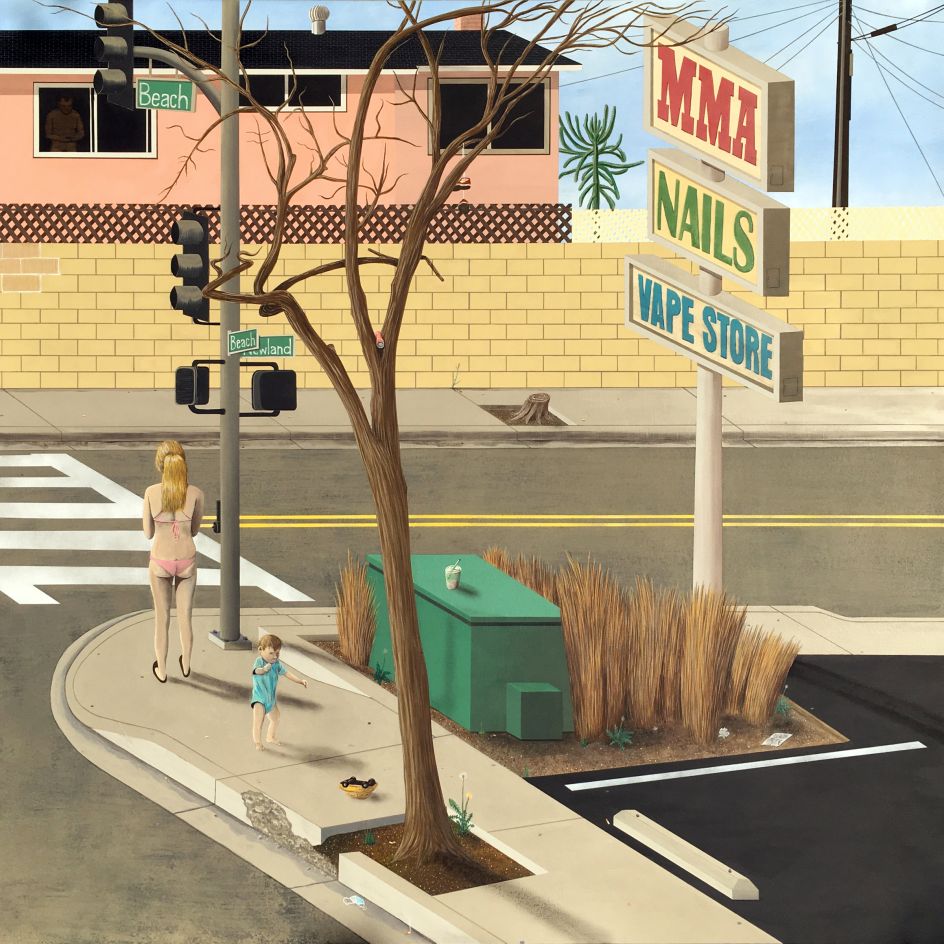
Beach & Newland © Ed Templeton, Courtesy of Roberts Projects, LA, California
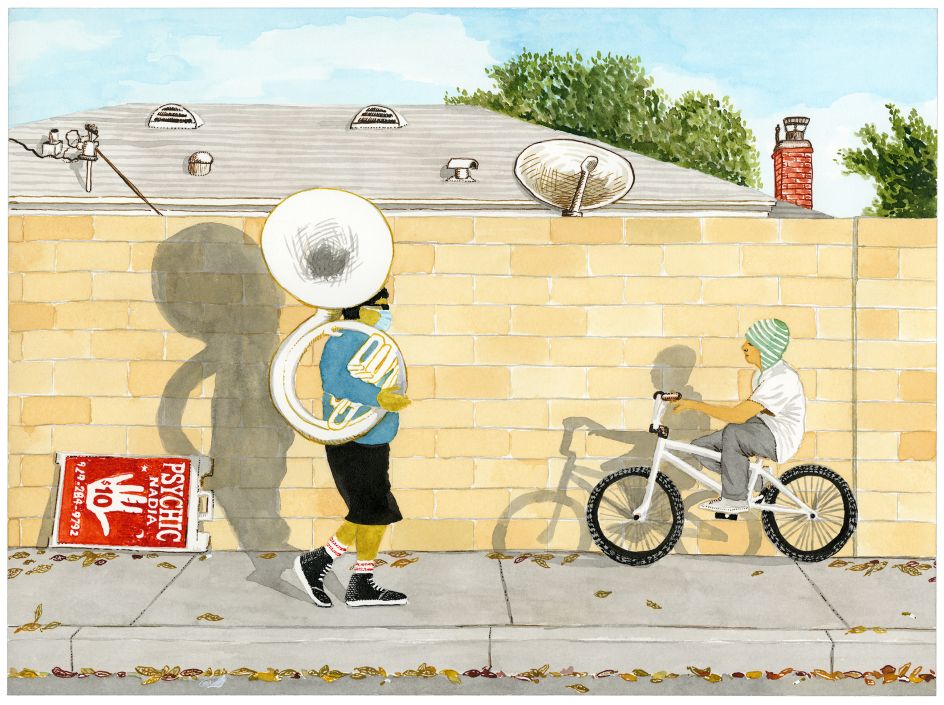
Man With Tuba © Ed Templeton, Courtesy of Roberts Projects, LA, California
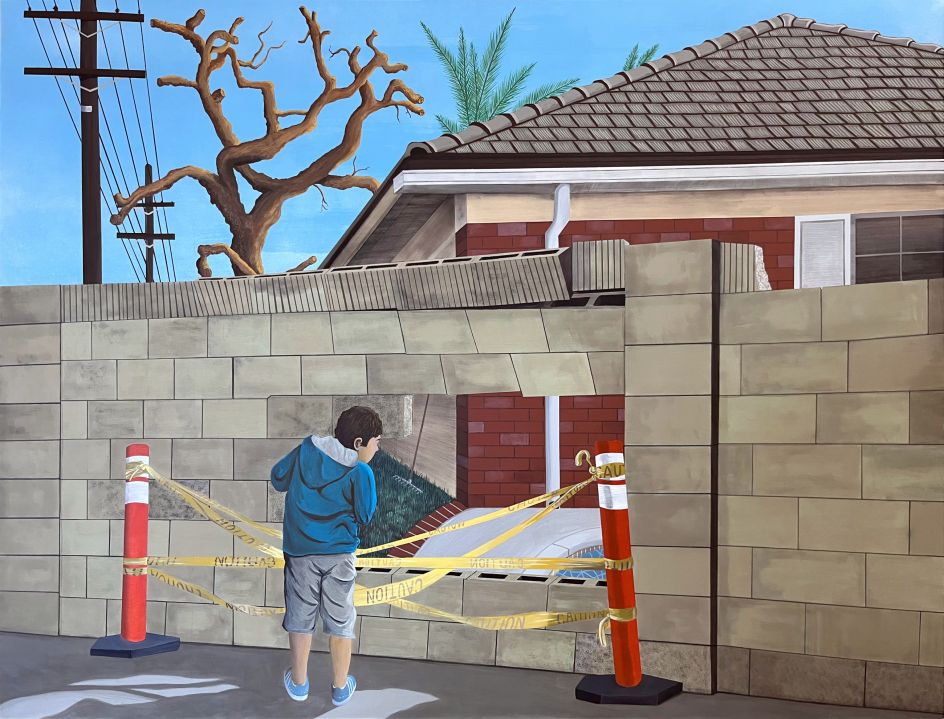
A Peek into the Rabbit Hole © Ed Templeton, Courtesy of Roberts Projects, LA, California
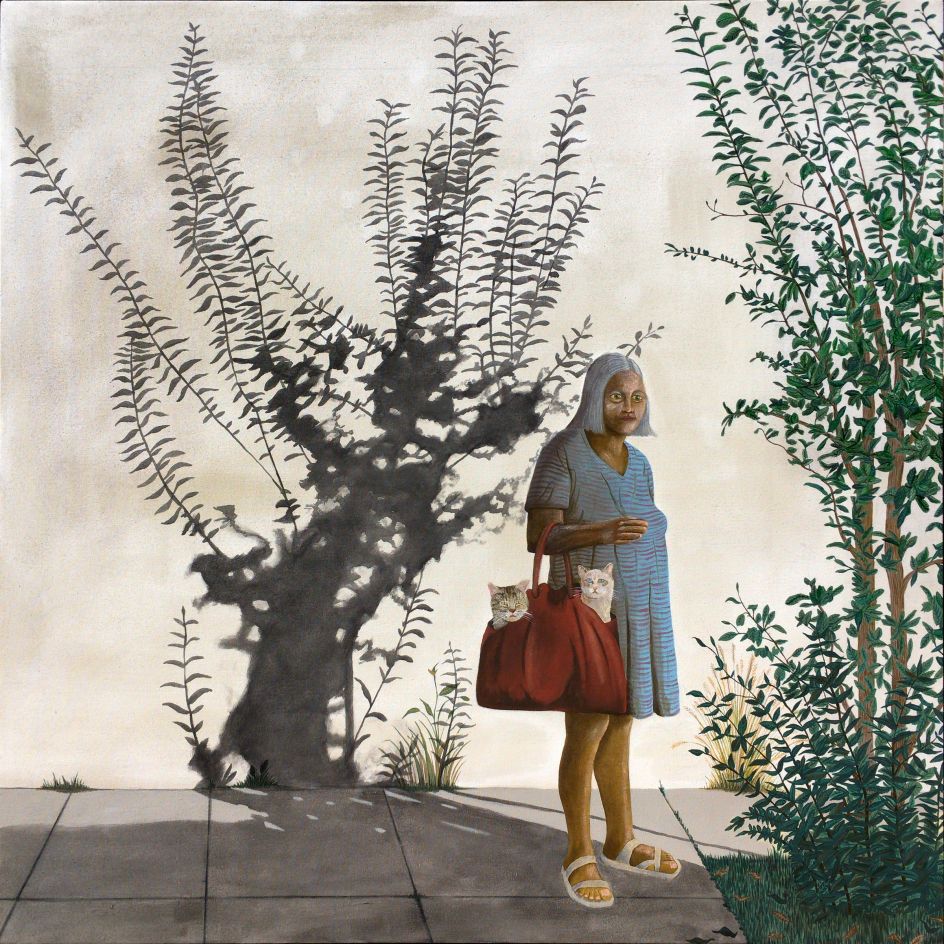
The Cat Woman © Ed Templeton, Courtesy of Roberts Projects, LA, California
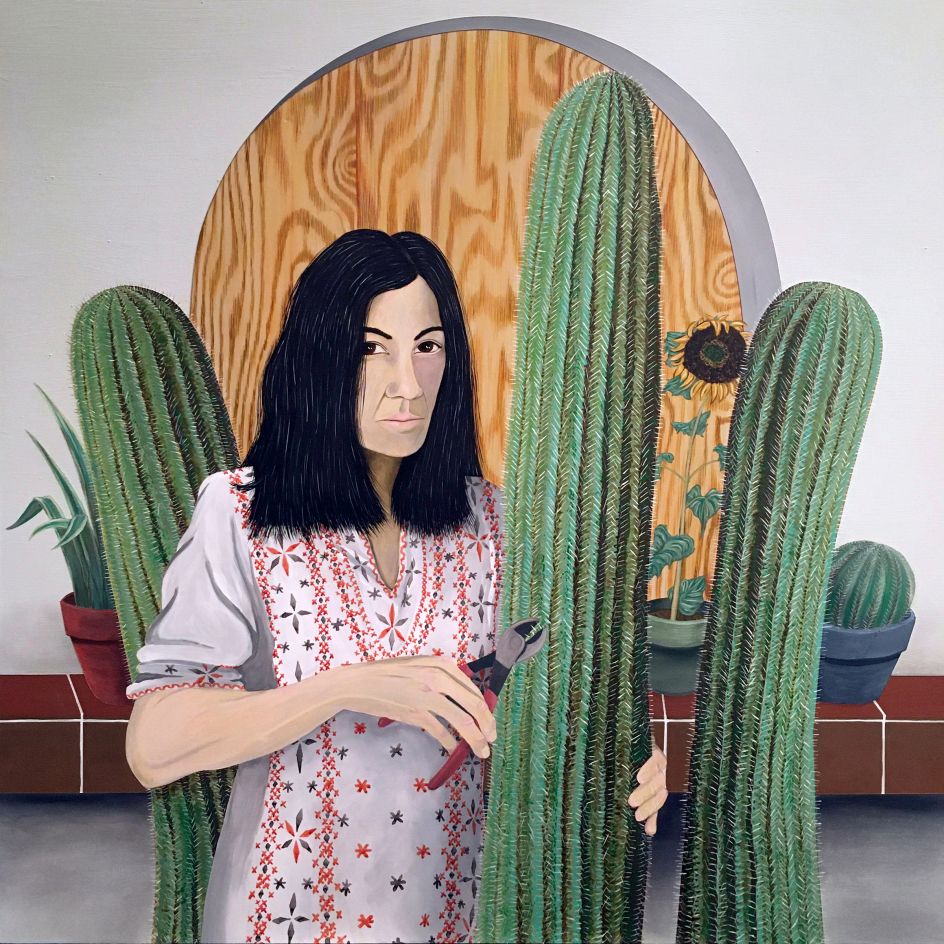
Deanna Templeton © Ed Templeton, Courtesy of Roberts Projects, LA, California




 by Tüpokompanii](https://www.creativeboom.com/upload/articles/58/58684538770fb5b428dc1882f7a732f153500153_732.jpg)


 using <a href="https://www.ohnotype.co/fonts/obviously" target="_blank">Obviously</a> by Oh No Type Co., Art Director, Brand & Creative—Spotify](https://www.creativeboom.com/upload/articles/6e/6ed31eddc26fa563f213fc76d6993dab9231ffe4_732.jpg)








